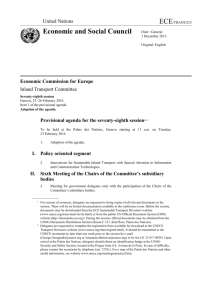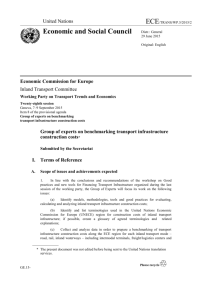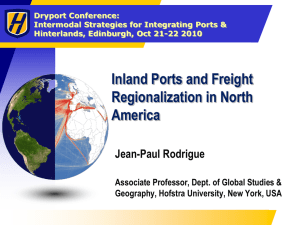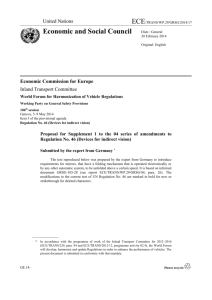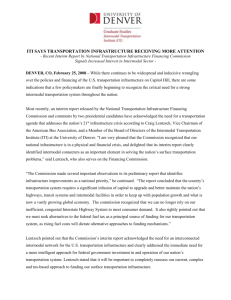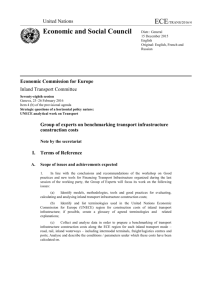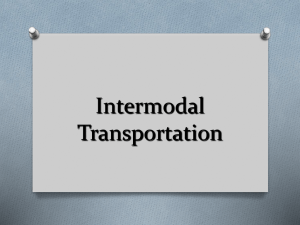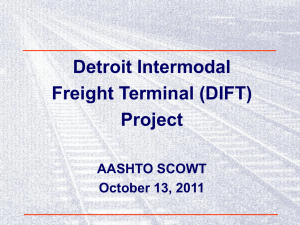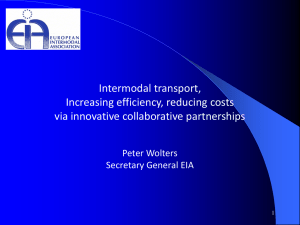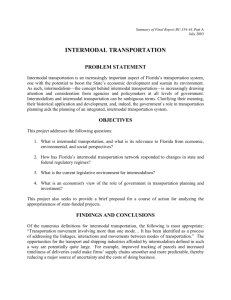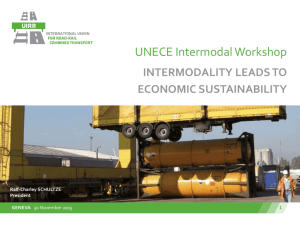Terms of Reference (ToR)
advertisement
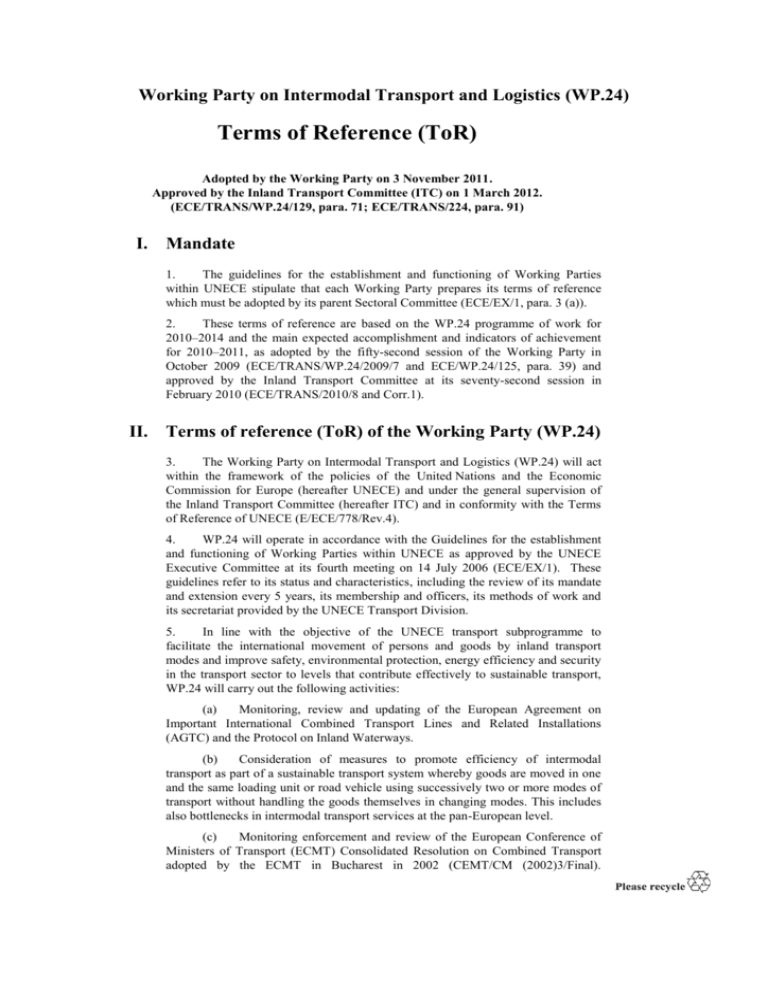
Working Party on Intermodal Transport and Logistics (WP.24) Terms of Reference (ToR) Adopted by the Working Party on 3 November 2011. Approved by the Inland Transport Committee (ITC) on 1 March 2012. (ECE/TRANS/WP.24/129, para. 71; ECE/TRANS/224, para. 91) I. Mandate 1. The guidelines for the establishment and functioning of Working Parties within UNECE stipulate that each Working Party prepares its terms of reference which must be adopted by its parent Sectoral Committee (ECE/EX/1, para. 3 (a)). 2. These terms of reference are based on the WP.24 programme of work for 2010–2014 and the main expected accomplishment and indicators of achievement for 2010–2011, as adopted by the fifty-second session of the Working Party in October 2009 (ECE/TRANS/WP.24/2009/7 and ECE/WP.24/125, para. 39) and approved by the Inland Transport Committee at its seventy-second session in February 2010 (ECE/TRANS/2010/8 and Corr.1). II. Terms of reference (ToR) of the Working Party (WP.24) 3. The Working Party on Intermodal Transport and Logistics (WP.24) will act within the framework of the policies of the United Nations and the Economic Commission for Europe (hereafter UNECE) and under the general supervision of the Inland Transport Committee (hereafter ITC) and in conformity with the Terms of Reference of UNECE (E/ECE/778/Rev.4). 4. WP.24 will operate in accordance with the Guidelines for the establishment and functioning of Working Parties within UNECE as approved by the UNECE Executive Committee at its fourth meeting on 14 July 2006 (ECE/EX/1). These guidelines refer to its status and characteristics, including the review of its mandate and extension every 5 years, its membership and officers, its methods of work and its secretariat provided by the UNECE Transport Division. 5. In line with the objective of the UNECE transport subprogramme to facilitate the international movement of persons and goods by inland transport modes and improve safety, environmental protection, energy efficiency and security in the transport sector to levels that contribute effectively to sustainable transport, WP.24 will carry out the following activities: (a) Monitoring, review and updating of the European Agreement on Important International Combined Transport Lines and Related Installations (AGTC) and the Protocol on Inland Waterways. (b) Consideration of measures to promote efficiency of intermodal transport as part of a sustainable transport system whereby goods are moved in one and the same loading unit or road vehicle using successively two or more modes of transport without handling the goods themselves in changing modes. This includes also bottlenecks in intermodal transport services at the pan-European level. (c) Monitoring enforcement and review of the European Conference of Ministers of Transport (ECMT) Consolidated Resolution on Combined Transport adopted by the ECMT in Bucharest in 2002 (CEMT/CM (2002)3/Final). Monitoring and analysis of national measures to promote intermodal transport. Consideration of ways to implement a harmonized set of best practices and partnership models for intermodal transport operations (road, rail, inland water transport and short-sea shipping). (d) Peer reviews on technical, institutional and policy aspects for efficient intermodal transport. (e) Analysis of the consequences on the organization of intermodal transport in Europe resulting from the development of intermodal transport services on interregional rail links between Europe and Asia, including the Trans-Siberian railway, and vice versa. (f) Monitoring and exchange of best practices on new concepts, design, weights and dimensions of loading units used in intermodal transport in accordance with resolution No. 241 adopted by the Inland Transport Committee on 5 February 1993. This includes consideration of possibilities for standardization of loading units and the compliance with safety regulations. (g) Analysis of technical and organizational measures to optimize terminal, transshipment and logistical procedures allowing for cost-effective handling procedures of loading units. (h) Consideration of possibilities for reconciliation and harmonization of liability regimes governing intermodal transport operations in a pan-European context. (i) Analysis of modern transport chains and logistics that allow for an integration of production and distribution systems providing a rational basis for Governmental decisions on transport demand, modal choice as well as on efficient intermodal transport regulations and infrastructures and taking into account transport safety and security requirements. (j) Monitoring and reports by the secretariat on behalf of the Working Party on a number of specific subjects as decided by the Working Party upon specific request only. (k) Review and update the IMO/ILO/UNECE Guidelines for Packing of Cargo in Intermodal Transport Units. 6. WP.24 will promote and provide technical cooperation and capacity-building in the fields of intermodal transport and logistics. 7. WP.24 will encourage participation in its activities by fostering cooperation and collaboration with the European Commission, intergovernmental and non-governmental organizations and other United Nations regional commissions and organizations or bodies of the United Nations system; 8. WP.24 will collaborate closely with other subsidiary bodies of ITC and other UNECE body on matters of common interest. _____________
